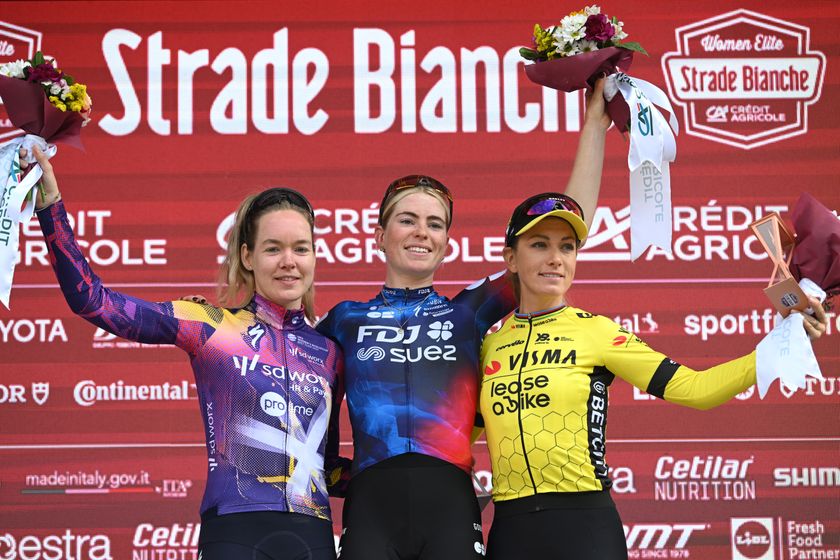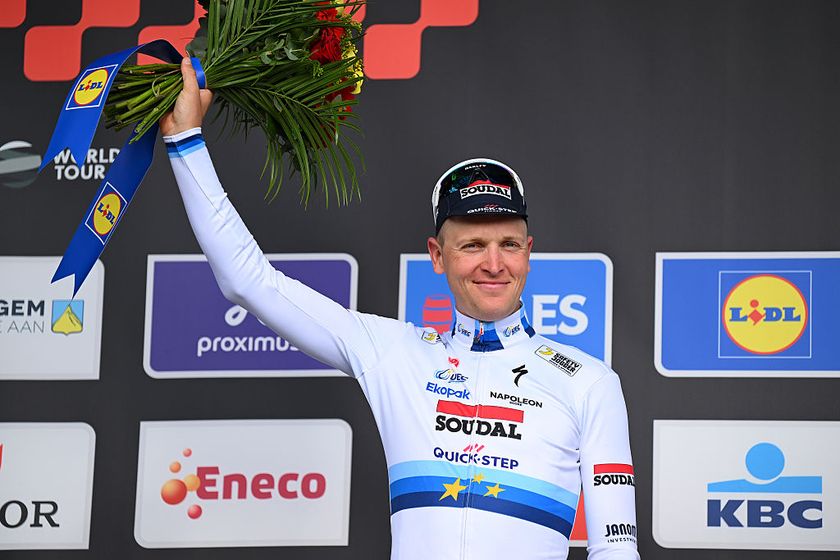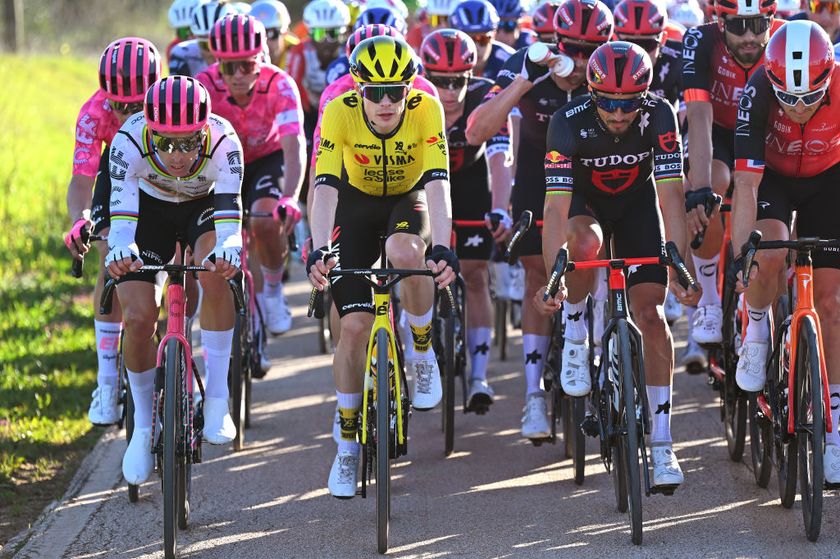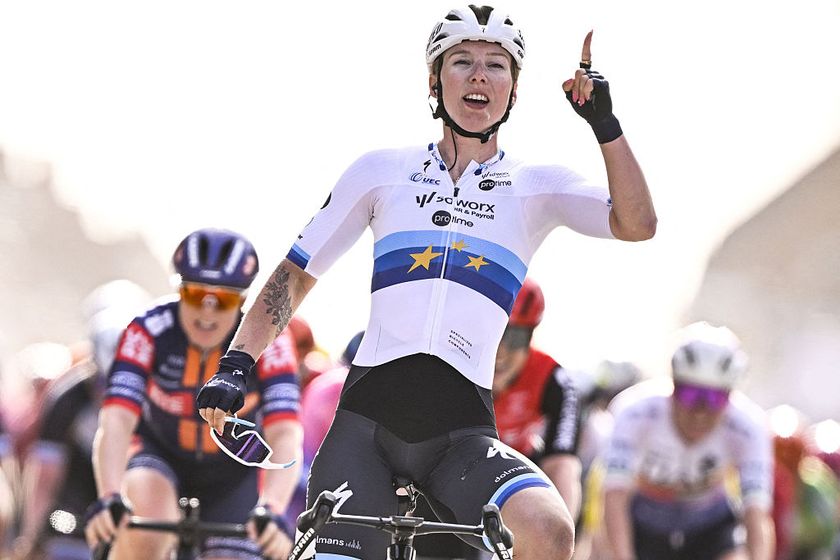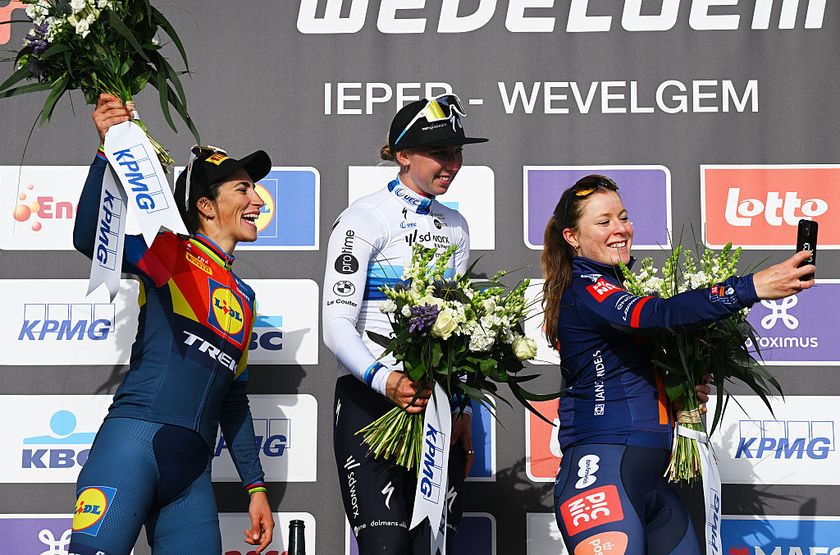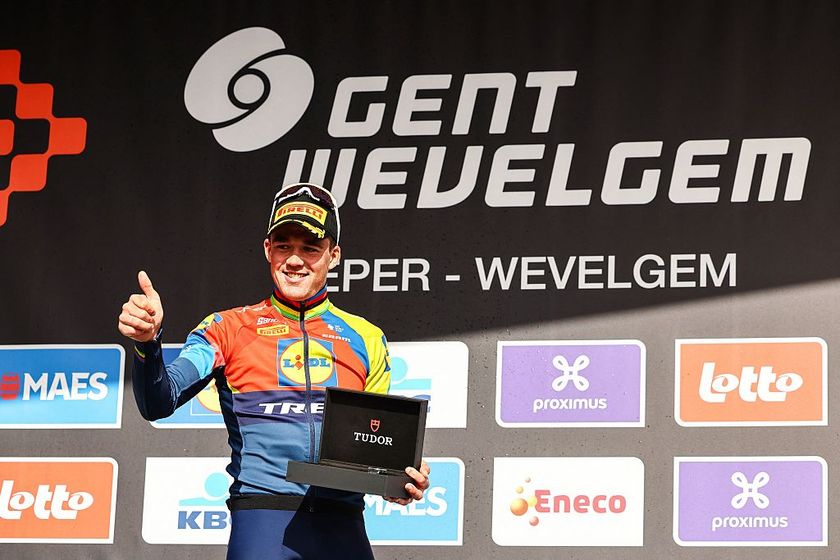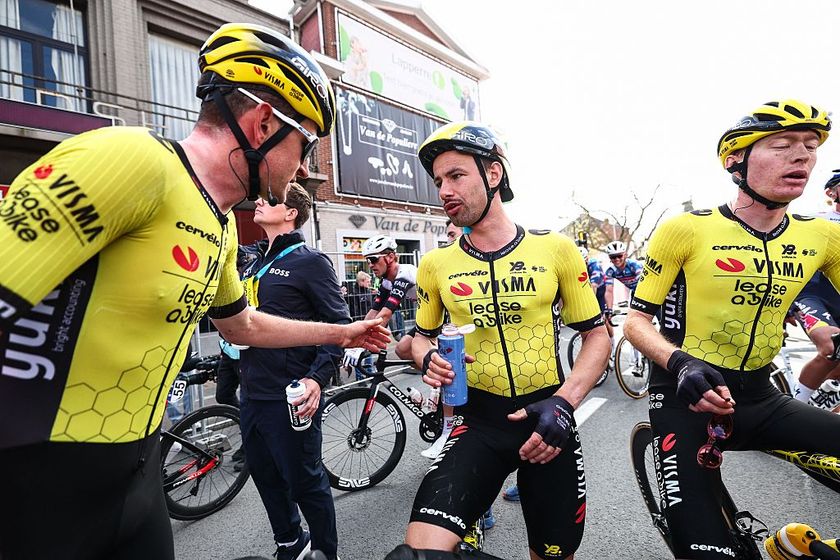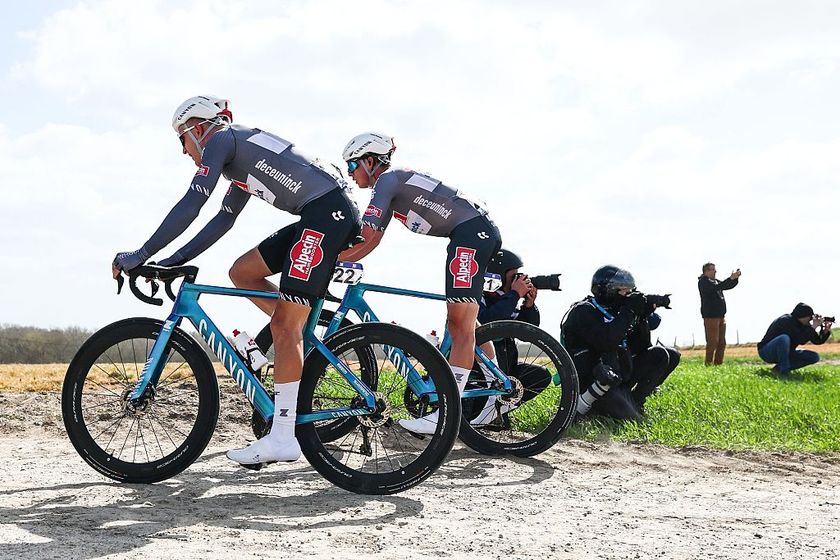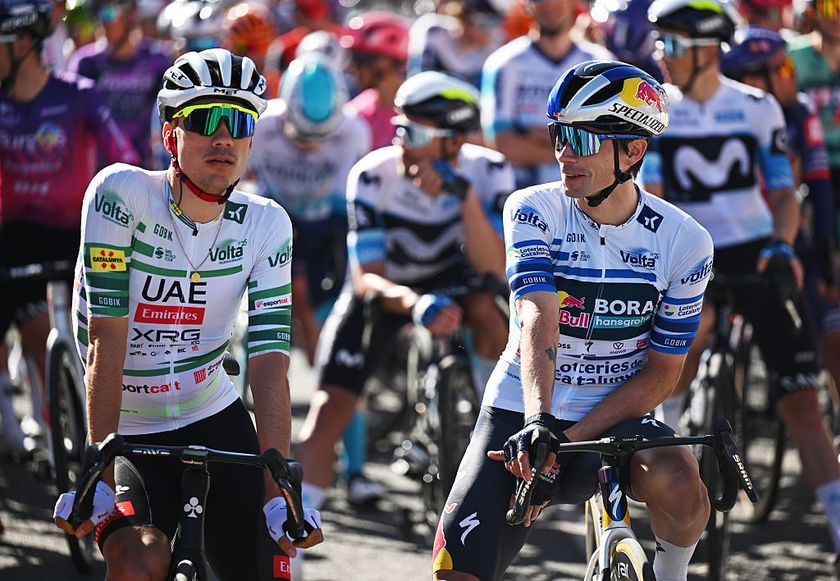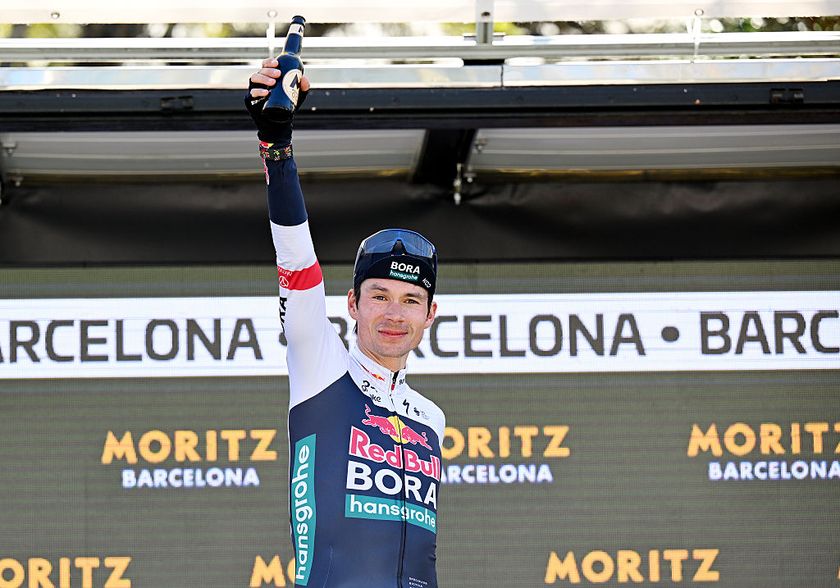Dunbar forced to abandon Volta ao Algarve after stage 1 crash
No fractures for Stuyven and Degenkolb




It hardly needs saying, but cycling is a cruel business. Three days ago, Eddie Dunbar animated the final stage of the Tour de la Provence with a determined attack that was only snuffed out in the closing kilometre, a promising harbinger for the season ahead. On Wednesday afternoon, the Irishman was forced to abandon the Volta ao Algarve after crashing heavily in finale of stage 1.
Dunbar was one of many riders to come down in the mass crash that took place a little over seven kilometres from the finish in Lagos. The Banteer native was unable to continue after sustaining a suspected dislocated shoulder and a head injury, and he was taken directly to hospital.
"Eddie went down with all the others in a large crash, he reckoned there could have been up to 80 riders in there, and four of our riders went down," Team Sky doctor Richard Usher said in a statement on the team site.
"Eddie had a bang on the head, but he's just got a very painful left shoulder and it looks like it may be dislocated. He's gone off to hospital for some X-rays and we'll take it from there."
Dunbar has previously highlighted the need for greater awareness surrounding the treatment of head injuries in cycling, pointing to the lengthy period of convalescence that he required after suffering a concussion at the 2017 GiroBio. The 22-year-old joined Team Sky last September following the demise of Aqua Blue Sport and has impressed in his opening races with the team.
Fellow Sky riders Tao Geoghegan Hart, Ian Stannard and Wout Poels also went down in the same crash as Dunbar, but all three finished the stage and will continue in the race on Thursday.
Degenkolb and Stuyven
A communique from the race organisation stated that eight riders required attention from the race doctor following the crash – Jon Irisarri (Caja Rural) was taken to hospital after the stage – though the full list of walking wounded was rather longer.
Get The Leadout Newsletter
The latest race content, interviews, features, reviews and expert buying guides, direct to your inbox!
When the television cameras stopped to film the aftermath of the mass, the lingered longest alongside the Trek-Segafredo duo of John Degenkolb and Jasper Stuyven, and it initially appeared as though the Belgian might be forced out of the race.
Degenkolb was the quicker of the two to get to his feet, but his concern for the wellbeing of his teammate was palpable as Stuyven sat wincing on the tarmac and clutching at his collarbone. The doctor arrived on the scene shortly afterwards, and began to rotate Stuyven's shoulder, suggesting that no bones had been broken.
The pair remounted and completed the stage 9:37 down on Fabio Jakobsen (Deceuninck-QuickStep), who won the sprint from a reduced peloton. Degenkolb and Stuyven boarded their team bus for further assessment immediately on crossing the finish line, but directeur sportif Steven de Jongh confirmed that neither rider had sustained any fractures in the incident.
"The two guys are pretty damaged, they lost skin all over their body. It was quite a hard impact at that speed, but I don’t know what happened because we were in the car far behind," De Jongh told Cyclingnews. "They have no fractures and their legs are OK, but they lost a lot of skin. After a high-speed impact, their bodies will be sore for the next few days."
Later on Wednesday night, Stuyven posted a short video on social media that showed bandages on both shoulders, knees and elbows, as well as a plaster on his back, together with a defiant message: "Can't knock me down!"
A little over a week from Belgium's Opening Weekend, Stuyven and Degenkolb will be reluctant to sacrifice any racing miles in Portugal over the coming days. "From what I can see, they will for sure start the race tomorrow," De Jongh said.

Barry Ryan was Head of Features at Cyclingnews. He has covered professional cycling since 2010, reporting from the Tour de France, Giro d’Italia and events from Argentina to Japan. His writing has appeared in The Independent, Procycling and Cycling Plus. He is the author of The Ascent: Sean Kelly, Stephen Roche and the Rise of Irish Cycling’s Golden Generation, published by Gill Books.
